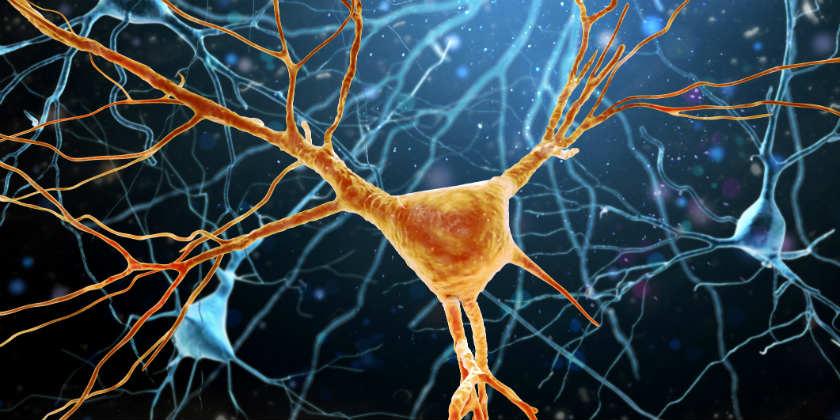What is Senile Dementia?
Senile dementia is a set of symptoms that affect the cognitive capacities, causing damage in the development of the routine of the person who suffers them.
Causes and types of senile dementia
Dementia can be caused by many different diseases, which are classified into the following types of dementia:
Progressive and irreversible dementia
The types of dementia whose development and severity are increasing. To these belong the following:
Alzheimer’s. It is the most common cause of dementia, being responsible for almost two thirds of the cases (it is estimated that it represents between 60 and 70% of the cases of dementia).
Vascular dementia. Caused by damage to the vessels, it is the second most common type. This condition causes the deterioration of the brain, and the patient can suffer serious consequences, such as strokes. More than memory loss, what patients with vascular dementia most often experience is difficulty in solving everyday problems and in concentrating and organizing themselves.
Dementia with Lewy bodies. After Alzheimer’s and vascular dementia, Lewy body dementia is the third most frequent type of dementia. These are deposits of proteins that accumulate abnormally in the neurons, specifically in the areas of the brain that are responsible for the good state and functioning of thought, memory and motor control.
Parkinson’s. As the disease evolves, so do the symptoms, among which are some typical of the state of dementia.
Frontotemporal dementia. This is a group of diseases that involve the deterioration of nerve cells and their corresponding connections with the frontal and temporal lobes of the brain. They affect, therefore, the areas of the brain associated with behavior and language.
Mixed dementia. The long years of research that medicine has been analyzing the possible causes of the development of a state of dementia have determined that many of the patients suffering from it had a combination of several causes. It is common, in fact, for the patient to suffer from Alzheimer’s, vascular dementia and Lewy bodies at the same time.
Disorders that cause dementia and whose development is reversible
There are various causes that can lead to a state of temporary dementia:
Metabolic and endocrine problems. People who have problems such as abnormal thyroid function, hypoglycemia (low blood sugar), too much or too little sodium or calcium, or problems absorbing vitamin B12.
Immune disorders. As a result of an immune infection, fever or other side effects can occur, which can lead to the development of symptoms of dementia.
Anoxia or hypoxia. This condition occurs when organ tissues do not receive enough oxygen for normal functioning.
Nutritional deficiencies. If you don’t get enough fluids, our older child may suffer an episode of dehydration that leads to disorientation and other symptoms of dementia. Lack of certain vitamins, such as B1, B6 and B12, can also cause them.
Medication side effects. Drug reactions can trigger some of the characteristic signs of dementia.
Another of the most common classifications of the types of dementia is that which divides them into primary and secondary degenerative dementias, to which the following conditions belong:
Primary degenerative dementias: Alzheimer’s, dementia with Lewy bodies and frontotemporal dementia.
Secondary degenerative dementias: Vascular dementia, dementias caused by infections and parkinson-related dementia.
Senile dementia symptoms
The symptoms of senile dementia vary according to the cause that provokes it, being the most frequent the following:
Cognitive abnormality
Short and long term memory problems.
Language impairment: slowed down and diminished ability to express oneself.
Confusion and disorientation in the three spheres: temporal, spatial and people.
Difficulty in reasoning or solving everyday problems.
Problems in performing complex tasks.
Apraxia: diminished ability to carry out movements with instructions and purpose, feeling lost.
Deterioration of motor functions.
Psychological abnormality
Personality change.
Depression.
Alterations of the dream.
Eating behavior disorder.
Usually hallucinations and delusions are common.
Senile dementia: phases
Dementia is shown in a progressive way, so that the following phases can be determined:
Initial phase senile dementia
Mild cognitive impairment (MCI) is experienced. It causes short-term memory to deteriorate, and initial problems with retaining new information or learning new concepts and tasks occur. Also, the first difficulties in speaking and expressing oneself easily and the first behavioral disorders begin. That is, the person will show up with shorter and simpler sentences and will suffer certain mood swings.
The closest family members or friends are usually the ones who notice these first signs of dementia.
Intermediate Phase Senile Dementia
The symptoms begin to manifest themselves more noticeably. The most recent memory begins to be lost in an accelerated way, although the most distant facts and anecdotes are remembered with more force.
Vocabulary begins to be more limited and motor functions suffer a clearly appreciable deterioration.
In this phase they need, for the first time, help to perform basic tasks such as bathing, eating or dressing. It is also the phase in which the patient suffers the most episodes of wandering, so that they can get lost in the city, being more exposed to potentially fatal falls.
As for the emotional changes, he feels frustrated, tired and discouraged, so he tends not to relate socially.
Advanced stage senile dementia
Cognitive impairment is serious and irreversible. The patient has become a totally dependent person who requires constant care during the day and night. Cognitive functions have greatly deteriorated and mobility is almost non-existent.
As a result of this loss of ability, if the patient does not receive the care he or she needs, he or she may suffer other serious added problems, such as malnutrition (as they lose the ability to chew and swallow food).
As for the memory state, the loss is almost complete, so that the patient is unable to recognize those around him.
Aggressive senile dementia
Caused by the changes in behavior and mood that develop throughout the illness that causes dementia, they often suffer episodes of verbal and physical aggression.
In this type of situation, caregivers, because of their experience in treating these patients, know perfectly well how to calm a person with senile dementia. They will use their experience and knowledge as professionals, among which their emotional skills stand out. Thanks to these, our elder will feel safe and understood, which will improve his or her daily attitude.
Senile dementia: treatment
Depending on the disease causing the dementia, the doctor will establish one treatment or another. The most common is usually medication and occupational therapies.
To administer this treatment, the figure of the caregiver is the best help that our family member can receive, since dementia requires personalized and stable attention that must be carried out in both the physical and psychological fields. Only in this way, our elder will be able to slow down the appearance of the mild and serious symptoms of his illness.
Difference between Alzheimer’s and senile dementia
Sometimes, there is a tendency to confuse these two health problems. But, after reading these previous lines, the confusion will no longer exist. The main difference is that, as indicated, dementia is a state of deterioration caused by various diseases (among which Alzheimer’s is the most common), while Alzheimer’s is a disease in itself.
How long do people with senile dementia live?
Early diagnosis of diseases that can cause dementia is vital. Sometimes, the symptoms tend to be associated with those of old age, so that it is not given more importance and do not go to a doctor’s visit. This worsens the prognosis of the disease and favors its rapid progression.
If the diagnosis is early, the life expectancy of a patient suffering the most common type of dementia is usually 10 to 12 years. We hope this article from Nomenial has been useful.







